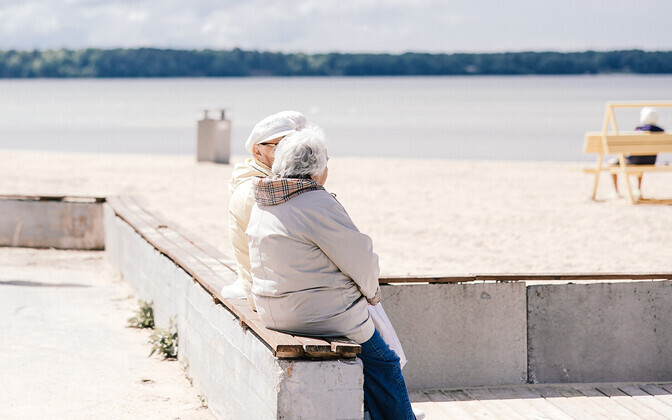Violence against senior citizens is a widespread problem in Estonia: one in three has faced physical, psychological or other forms of abuse, according to one report.
A 2023 report commissioned by the Ministry of Social Affairs, “Older People in Estonia: An Overview,” found nearly one third of elderly respondents had experienced some form of domestic violence.
According to Anne Siniaas, case manager at the Tartu Women’s Support and Information Center, physical and psychological abuse are the most common forms of abuse reported. Other forms of abuse are reported as well.
“Economic abuse is very common,” Siniaas said. “For example, relatives may take away [a senior citizen’s] bank card or prevent them from using their own money. And some elderly people are simply tricked into giving away their own property and are then evicted.”
Neglect is another issue, she continued, “which is sometimes unintentional, because younger people simply don’t know what older people need.”
Agu Laius, head of advocacy at the nonprofit Golden League (KL), noted a lot of elderly abuse may be invisible.
“A lot of this abuse happens within families, making it harder to detect,” Laius explained. “Senior citizens often don’t want to admit their relatives are abusive toward them.”
Siniaas added that seniors face extra barriers to seeking help. For example, if the abuser is an adult child, the parent may avoid seeking help out of fear of losing that relationship. Other obstacles include stigma, generational attitudes toward punishments and sexual violence, feelings of guilt or shame as well as declining health or cognitive ability.
“These things are considered a family matter that isn’t discussed outside the home,” the case manager described. “Sexual violence within a marriage is often seen as the partner’s right, and the other is expected to simply submit. Corporal punishment is also often regarded as normal by older generations.”
Some seniors may also feel they’ve always managed on their own, so asking for help now feels impossible, she added.
Siniaas stressed that people around elderly abuse victims can help. “Talk to a social worker, or call a women’s shelter,” she urged. “Or at least reach out so we can assess whether there is abuse going on or not.”
Help is available
Women experiencing domestic violence can call the Estonian Women’s Shelters Union’s (ENVL) 24-hour hotline at 1492.
More information about women’s shelters across Estonia can be found on the Social Insurance Board (SKA) website here.
Anyone of any gender experiencing domestic violence can call the 24-hour Ohvriabi victim support hotline at 116 006.
More information about Ohvriabi’s victim support services can be found on the SKA website here.
—
Follow ERR News on Facebook and X and never miss an update!
